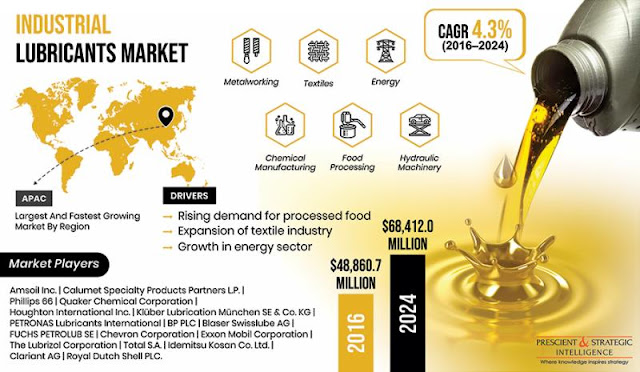
Why Are Lubricants Vital for Industries?
Wherever there are mechanical objects at work, there are friction and wear and tear due to their constant contact with each other. This is why lubricants are so important in factories and other industrial settings. Wear and tear and the heat generated due to friction are the major forces behind the breakdown of machines. Apart from leading to the need for regular maintenance and overhauling, these forces also lead to a high fuel and electricity consumption, by making the machine work harder to do the same thing.
Hence, considering the burgeoning manufacturing output around the world, P&S Intelligence sees a bright future for the industrial lubricants market ahead. The rising population is leading to the increasing demand for all kinds of products, which is giving a boost to the manufacturing sector. Additionally, governments of numerous nations are encouraging manufacturers to set up their plants there. Some of the efforts made in this regard are the Made in China 2025, Make in India, and Making Indonesia 4.0 initiatives.
Therefore, be it automotive, aerospace & marine, pharmaceutical & medical device, food & beverage, defense, chemical & polymer, metal & mining, building & construction, wood & furniture, electrical & electronics, textile & clothing, consumer products (including cosmetics & personal care), or power & energy (including oil & gas exploration & production), every industry is growing around the world. This is being seen in the rapid construction of manufacturing plants and expansion of the existing ones. Therefore, with more machines in use around the world, the consumption of lubricants is increasing as well.
Seeing the continuous rise in the number of industrial spaces, even lubricant manufacturers have shifted their production base to APAC countries. This has allowed them to leverage the cost advantages and target a wider consumer base easily. This is being aided by the government measures that seek to boost manufacturing capacity and reduce their reliance on imports. For instance, the Indian government now allows 100% foreign direct investment (FDI), to boost industrial production.
Therefore, as the industrial sector grows, so will the demand for various kinds of lubricants to keep the machines running smoothly.
Comments